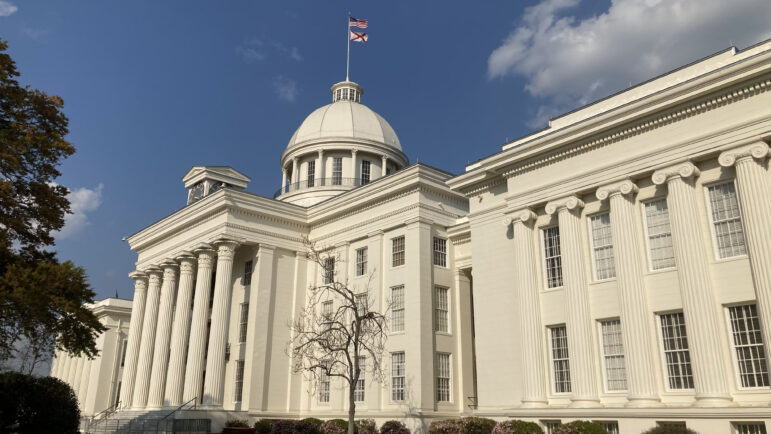The Alabama House Thursday passed a sweeping gambling bill, one that could bring a lottery, casinos and sports betting to the state. It’s a change of luck for gambling proponents as similar proposals historically have died in the House.
“The House passed this about as quickly as you can,” said Todd Stacy, host of Capitol Journal on Alabama Public Television.
Stacy discussed that and other action from this past week of the 2024 Alabama legislative session.
Gambling
The proposed constitutional amendment would allow up to 10 casino sites with table games and slot machines plus a state lottery. It would allow sports betting at in-person locations and through online platforms. The bill would also authorize the governor to negotiate a agreement with the Poarch Band of Creek Indians.
The measure passed on a 70 to 32 vote, exceeding the 63 yes votes needed in the House for a proposed change to the Alabama Constitution. It now moves to the Alabama Senate. If it wins final approval in the Statehouse, the proposal will go before Alabama voters in the November general election, the first public vote on gambling since a proposed lottery was rejected in 1999.
Stacy pointed to several factors that led to passage in the House. First, interests behind a lottery, casinos and sports betting were largely aligned unlike previous years. He also said the fact that all 27 Democrats voted for the plan helped the proposal win approval.
“The last time this was an issue back in 2021 there was disagreement between the Republicans and Democrats about some specifics in the bill. This time there wasn’t,” Stacy said. “When you have that 27 votes, it makes up for the fact 32 Republicans voted against it.”
Just because the House took up the gambling package swifty does not mean the Senate will do the same. While Stacy said the sentiment among legislators is the gambling bill will pass this year, a delay doesn’t work in proponents favor.
“That gives time to the opposition,” Stacy said. “There are conservative groups out there that are opposed to this, that think it’s a bad idea, that think it’s going to lead to corruption and family breakdown. The longer they take in the Senate, the longer those groups have to get that message out.”
Archives and history department oversight
The Alabama Senate voted Wednesday to put a politically appointed board in control of the Alabama Department of Archives and History, a change proposed after some lawmakers were upset about the department hosting a lecture on LGBTQ history.
The Archives’ monthly lunchtime lecture series last year included a June presentation titled “Invisible No More: Alabama’s LGBTQ+ History.” The lecture discussed topics ranging from the state’s first Pride march to the contributions of gay Alabamaians.
“It kind of got blown out of proportion you might say and a lot of Republican Senators saw an opportunity to make political hay about it,” Stacy said.
The board currently has two members from each congressional district, two at-large members and the governor. Board members are selected by a vote of the trustees and confirmed by the Senate. Under the legislation, the board would be appointed by the governor, lieutenant governor and legislative leaders.
Stacy said bill sponsor Sen. Chris Elliott felt the department hadn’t been responsive to questions he had about the event and a different appointment structure would make the archives more accountable.
“[There’s] plenty of opposition. The Democrats said this was a meaningless bill,” Stacy said.
Changes to education savings accounts
Lawmakers spent time this week diving into Gov. Kay Ivey’s marquee issue of the legislative session – education savings account. The proposed $100 million fund would provide up to $7,000 tuition vouchers, initially aimed at low- and middle-income families and families of students with disabilities. Families could use the taxpayer money for private school tuition, home schooling or other expenses.
Stacy said a substitute bill is on the way.
“There was some confusion out of the gate as to, ‘Does this bill cap how much money can be spent on education savings accounts?’” Stacy said. “A lot of people wanted a cap on that.”
According to Stacy, lawmakers will likely limit the amount of money going to the education savings account plan, at least in the first few years.
Includes reporting from the Associated Press

